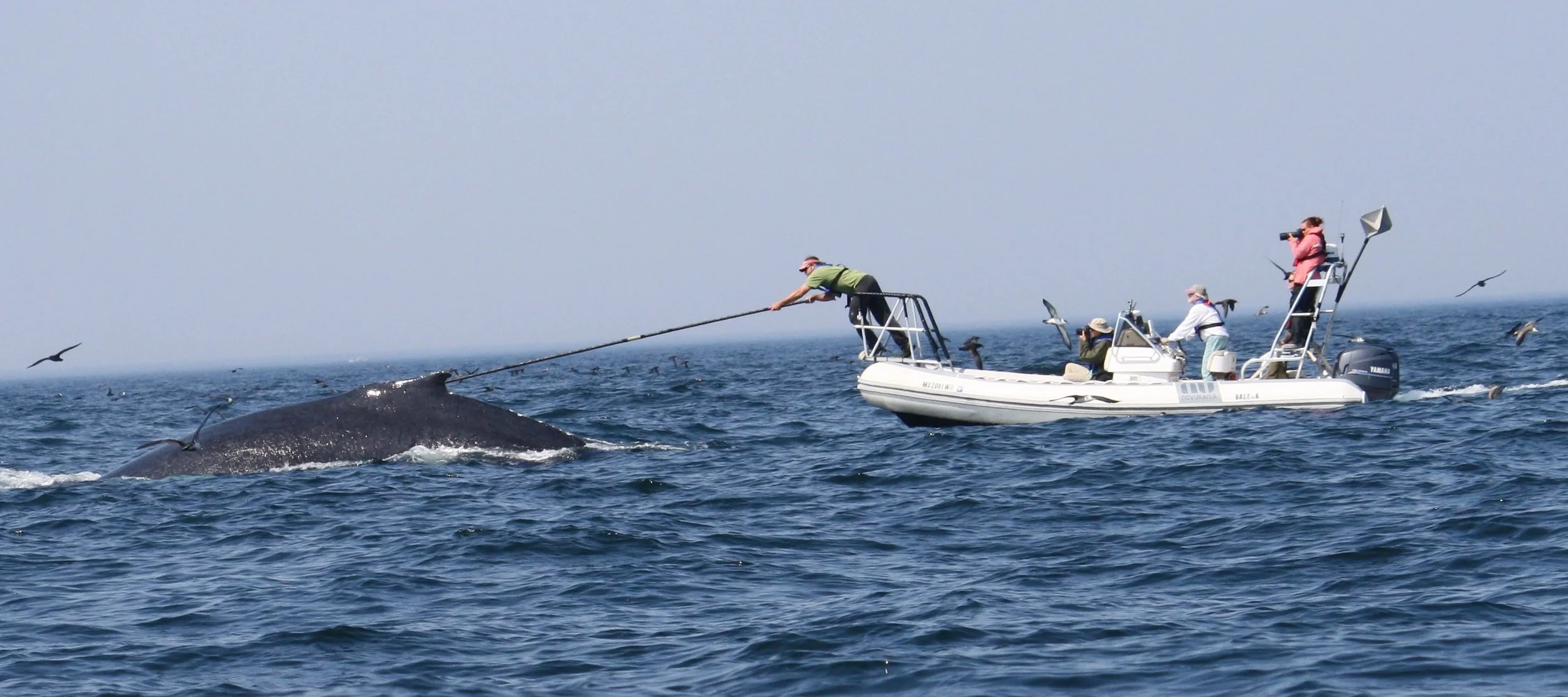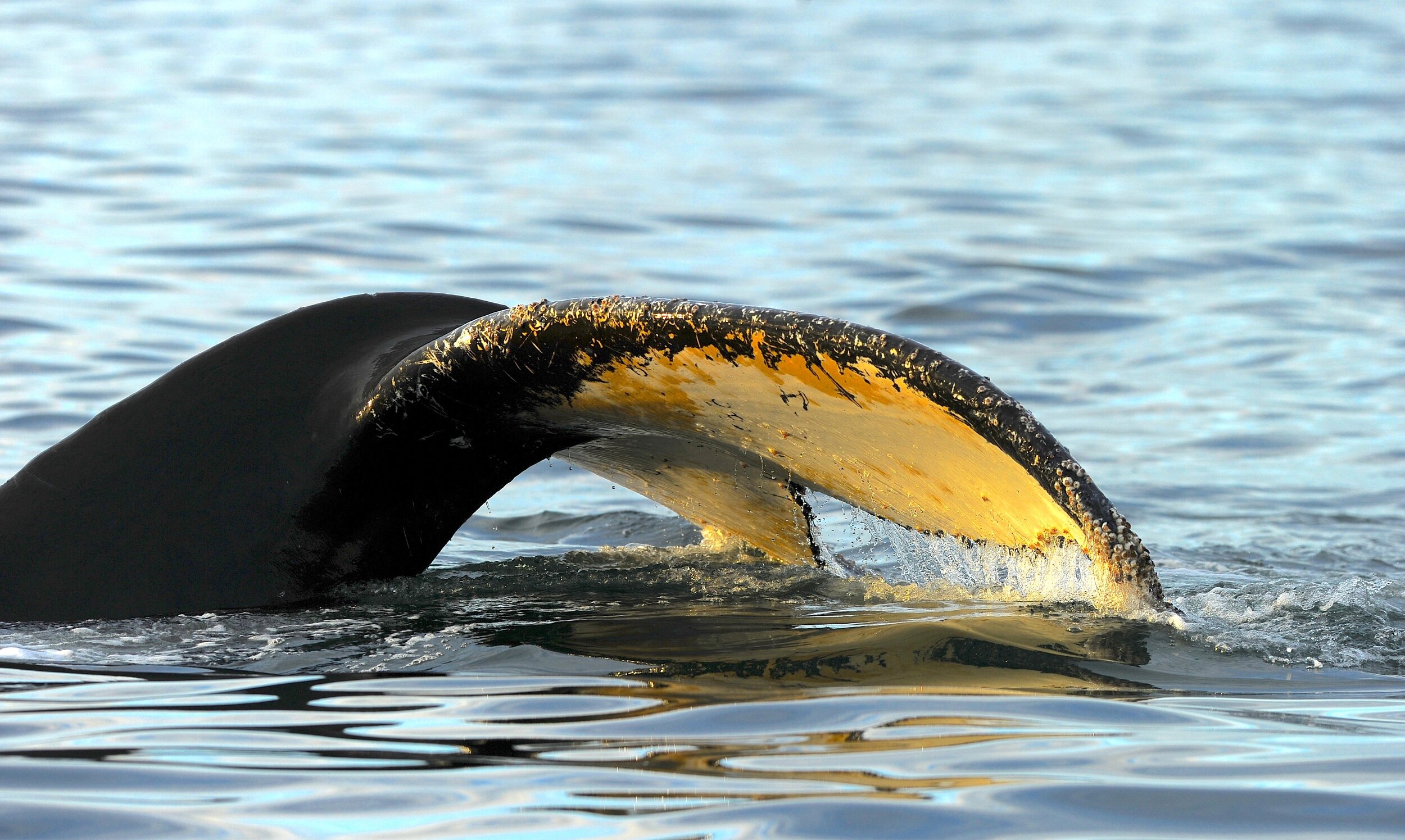Research
The California Ocean Alliance works together with research partners around the world on cutting-edge and multi-disciplinary marine mammal research to promote and inform conservation, management, and education. We conduct and support research on a variety of species and ecosystems to understand how human activities impact the health and survival of marine mammals. The information gleaned from our various research programs feed directly into the creation of management and conservation actions and also is utilized to create unique and progressive educational programs. Check out our researcher photo gallery here.
Rapid Response: Assessing the Impacts of COVID19 on Whales in Monterey Bay
As we all manage the effects and restrictions of the COVID19 pandemic, there is a unique opportunity to better understand how changes in human activity affect marine mammals. One of the consequences of our current situation is less boat traffic and human activity in Monterey Bay. It is well known that boats and shipping traffic add sound to the marine environment and that increased sound can affect whale communication, foraging, social systems, reproductive rates, and even population growth. COA researchers along with colleagues from MBARI, UCSC, Stanford, and The Marine Mammal Center, are working together to better understand the impact that reduced sound during the COVID19 pandemic is having on humpback whales by measuring levels of stress hormones found in blubber. Through chemical analysis of blubber samples we can link stress hormone levels to both ambient sound levels recorded by the MARS hydrophone array and ship traffic through analysis of AIS data. We are currently in the process of collecting blubber samples and recordings of noise levels in Monterey Bay and will compare these with samples and recordings made next year at the same time to see how whales respond to changes in ship noise and traffic. We are seeking support to help fund this research and the analysis of samples so that we can better conserve and protect marine mammals in Monterey Bay.
Preventing Ship Strikes and Whale Entanglement
COA has been partnering with Cascadia Research Collective to conduct research to better understand the causes and potential solutions to the mortality of large whales due to ship strikes and entanglements.
Behavioral Responses of Marine Mammals to Sound
An important and timely question in marine mammal research with direct conservation implications is how human sounds in the ocean can affect these sound-centric species. We know that they use and rely on sounds in the ocean for virtually every important aspect of their lives, from reproduction to foraging, navigation, and avoiding predators. Through research collaborations and research projects around the world, most recently in California, we have developed and applied new high-resolution technologies and controlled experimental methods to measure how marine mammals behave normally and how they may respond to underwater sounds.
Impacts of Climate Change on Marine Mammals
As the Antarctic Peninsula warms faster than any other region on the planet, understanding how these changes affect the structure and function of the Antarctic marine ecosystem is a paramount question. In order to understand the effects of these changes on Antarctic marine mammals, we have developed a long-term project that will allow us to measure the behavior of individual animals living in the Antarctic and determine how changes in sea ice affect the behavior of different species.
Soundscape Monitoring in Monterey Bay
Because of the critical importance of sound in the natural history of marine mammals and in fact most marine life, baseline acoustic monitoring of marine environments provides an acoustic window into their world. By listening we can learn about the natural ambient noise conditions of the ocean, how animals contribute to this, and how people are influencing the underwater soundscape. COA is dedicated to work in partnership with other research organizations to help monitor ocean noise in several areas around the world, including right here in Monterey Bay, to better understand basic biology and how it may be affected by changing environmental conditions and human disturbance.






